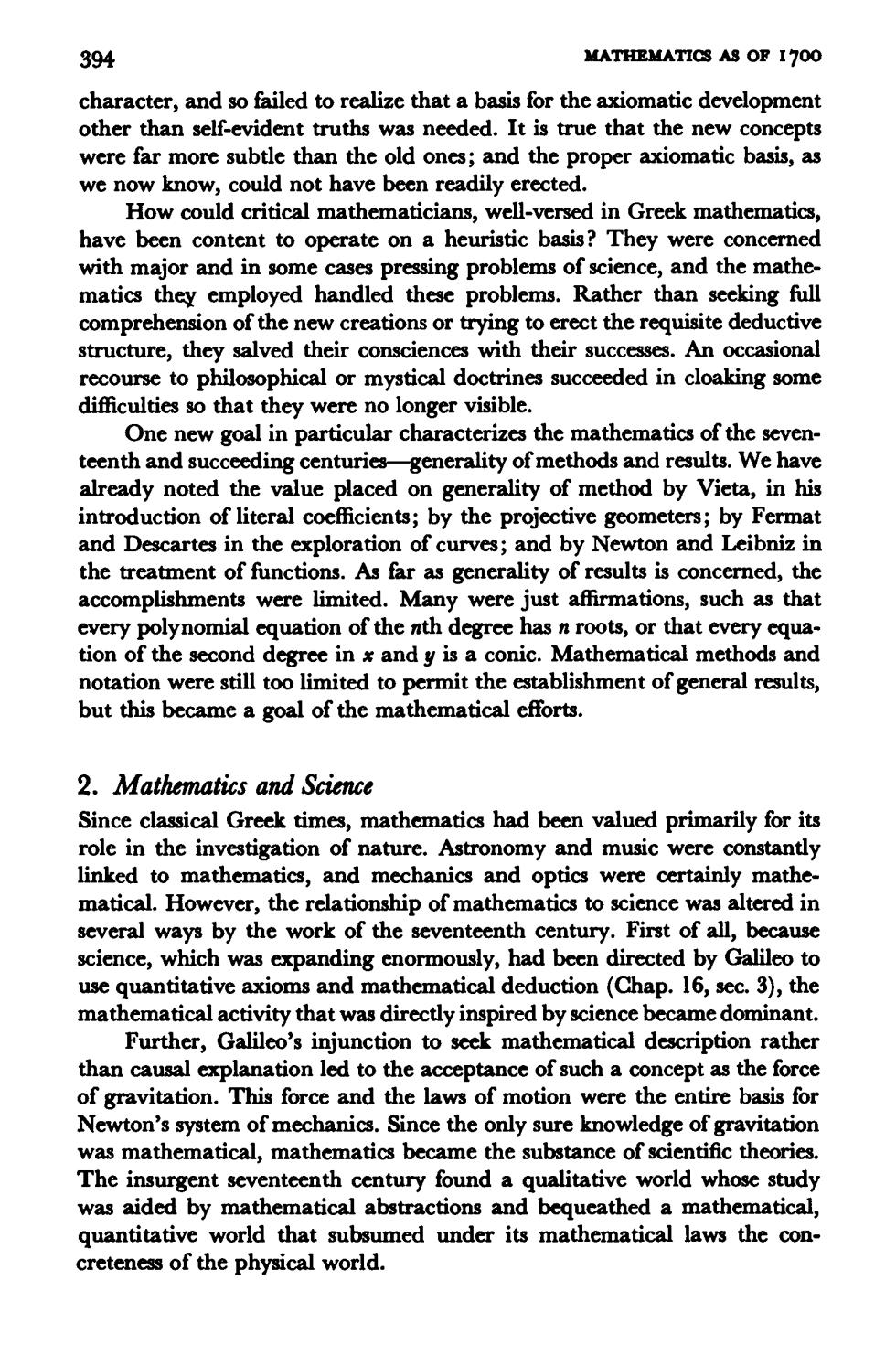正在加载图片...

394 MATHEMATICS AS OF 1700 character,and so failed to realize that a basis for the axiomatic development other than self-evident truths was needed.It is true that the new concepts were far more subtle than the old ones;and the proper axiomatic basis,as we now know,could not have been readily erected. How could critical mathematicians,well-versed in Greek mathematics, have been content to operate on a heuristic basis?They were concerned with major and in some cases pressing problems of science,and the mathe- matics they employed handled these problems.Rather than seeking full comprehension of the new creations or trying to erect the requisite deductive structure,they salved their consciences with their successes.An occasional recourse to philosophical or mystical doctrines succeeded in cloaking some difficulties so that they were no longer visible. One new goal in particular characterizcs the mathematics of the seven teenth and succeeding centuries-generality of methods and results.We have already noted the value placed on generality of method by Vieta,in his introduction of literal coefficients;by the projective geometers;by Fermat and descartes in the exploration of curves;and by Newton and Leibniz in the treatment of functions.As far as generality of results is concerned,the accomplishments were limited.Many were just affirmations,such as that every polynomial cquation of the nth degree has n roots,or that every equa tion of the second degree in and y is a conic.Mathematical methods and notation were still too limited to permit the establishment of general results, but this became a goal of the mathematical efforts. 2.Mathematics and Science Since classical Greck times,mathematics had been valued primarily for its role in the investigation of nature.Astronomy and music were constantly linked to mathematics,and mechanics and optics were certainly mathe- matical.However,the relationship of mathematics to science was altered in several ways by the work of the seventcenth century.First of all,because science,which was expanding enormously,had been directed by Galileo to use quantitative axioms and mathematical deduction (Chap.16,sec.3),the mathematical activity that was directly inspired by science became dominant. Further,Galileo's injunction to seck mathematical description rather than causal explanation led to the acceptance of such a concept as the force of gravitation.This force and the laws of motion were the entire basis for Newton's system of mechanics.Since the only sure knowledge of gravitation was mathematical.mathematics became the substance of scientific theories The insurgent seventeenth century found a qualitative world whose study was aided by mathematical abstractions and bequcathed a mathematical, quantitative world that subsumed under its mathematical laws the con creteness of the physical world